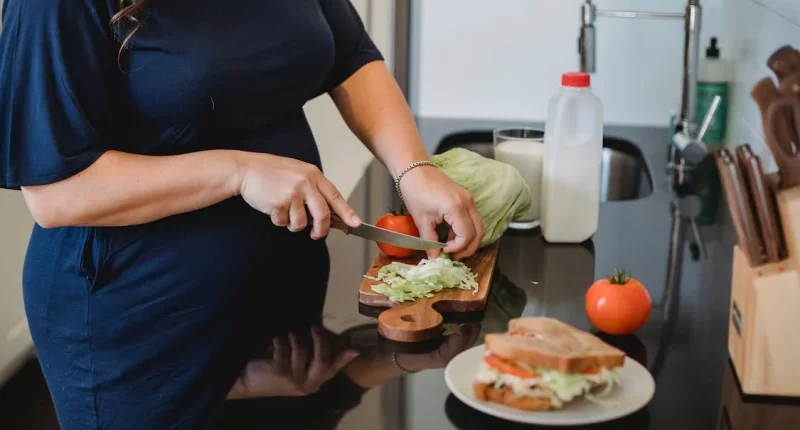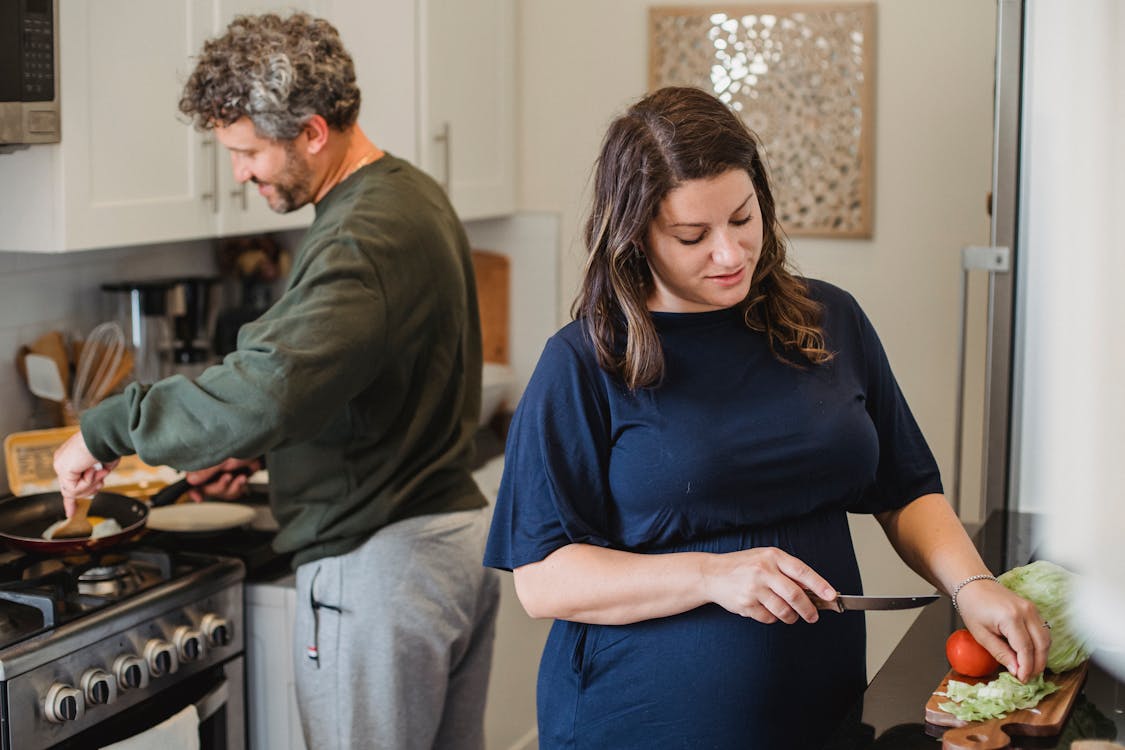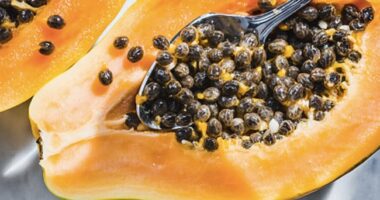Find out “How to Handle Food Poisoning During Pregnancy” Pregnancy is a joyous time in a woman’s life, but it can also come with its share of challenges. One such challenge is the increased risk of food poisoning. While food poisoning is unpleasant for anyone, it can be particularly concerning during pregnancy due to potential risks to both the mother and the baby. In this article, we will explore the causes, prevention, and steps to handle food poisoning during pregnancy, ensuring the health and well-being of both mother and child.
Table of Contents
Understanding Food Poisoning
Causes of Food Poisoning
Food poisoning can be caused by various bacteria, viruses, and parasites that contaminate food. Some common culprits include Salmonella, E. coli, Listeria, and Campylobacter. These pathogens can be found in raw or undercooked meats, eggs, unpasteurized dairy products, contaminated fruits and vegetables, and improperly stored or handled food.
Common Symptoms of Food Poisoning
The symptoms of food poisoning may vary depending on the type of pathogen involved. However, common symptoms include nausea, vomiting, diarrhea, abdominal cramps, fever, and fatigue. These symptoms can appear within a few hours to a few days after consuming contaminated food.
Risks of Food Poisoning During Pregnancy
Food poisoning during pregnancy can pose risks to both the mother and the developing baby. Severe cases of food poisoning may lead to dehydration, which can be harmful to the mother and affect the baby’s health. Certain pathogens, such as Listeria, can also cross the placenta and cause serious complications, including miscarriage, stillbirth, or premature delivery.
Prevention of Food Poisoning
Prevention is key when it comes to handling food poisoning during pregnancy. By following safe food handling practices and making informed choices about what you eat, you can greatly reduce the risk of foodborne illnesses. Here are some essential preventive measures:
Safe Food Handling Practices
- Wash your hands thoroughly with soap and water before and after handling food.
- Keep raw and cooked foods separate to avoid cross-contamination.
- Use separate cutting boards and utensils for raw and cooked foods.
- Cook foods to their recommended internal temperatures to kill harmful bacteria.
- Store perishable foods properly and refrigerate them promptly.
Foods to Avoid During Pregnancy
Certain foods have a higher risk of contamination and should be avoided during pregnancy. These include:
- Raw or undercooked meats and poultry
- Raw or undercooked eggs and foods containing raw eggs
- Unpasteurized dairy products
- Soft cheeses made from unpasteurized milk
- Raw or undercooked seafood and shellfish
- Unwashed fruits and vegetables
Importance of Proper Cooking Temperatures
Proper cooking temperatures are crucial in eliminating harmful bacteria and ensuring food safety. Use a food thermometer to accurately measure the internal temperature of cooked foods. Here are the recommended minimum internal temperatures for different types of food:
- Poultry: Cook until the internal temperature reaches 165°F (74°C) throughout.
- Ground meats: Cook until the internal temperature reaches 160°F (71°C).
- Steaks, roasts, and fish: Cook until the internal temperature reaches 145°F (63°C).
- Eggs: Cook until both the yolk and white are firm.
By following these guidelines, you can significantly reduce the risk of consuming undercooked or contaminated food.
What to Do if You Suspect Food Poisoning
Despite your best efforts, you may still find yourself experiencing symptoms of food poisoning during pregnancy. It’s important to act promptly and take the following steps:
Identifying the Symptoms
If you experience symptoms such as nausea, vomiting, diarrhea, or abdominal cramps, it’s essential to consider the possibility of food poisoning. Keep track of your symptoms and their severity, as this information will be helpful when seeking medical advice.
Contacting Your Healthcare Provider
Contact your healthcare provider as soon as possible if you suspect food poisoning. They will be able to assess your situation, provide guidance, and determine if further medical intervention is necessary. It’s crucial not to ignore symptoms or delay seeking medical advice, as prompt treatment can help prevent complications.
Staying Hydrated and Resting
One of the main concerns during food poisoning is dehydration. Diarrhea and vomiting can lead to fluid loss, so it’s important to stay hydrated. Drink plenty of water and clear fluids, such as electrolyte solutions or broth, to replace lost fluids. Resting is also crucial to allow your body to recover and regain strength.
Treatment and Remedies for Food Poisoning
When it comes to the treatment of food poisoning during pregnancy, medical interventions may be necessary depending on the severity of the symptoms. However, there are also natural remedies that can provide relief. Here are some options to consider:
Medical Interventions
If your symptoms are severe or if you’re at a higher risk of complications due to pregnancy, your healthcare provider may recommend specific treatments. These may include antiemetic medications to control vomiting, intravenous fluids for hydration, or antibiotics in certain cases.
Natural Remedies for Relief
There are several natural remedies that can help alleviate the symptoms of food poisoning:
- Ginger: Ginger has anti-inflammatory properties and can help relieve nausea. You can try ginger tea, ginger candies, or ginger capsules after consulting with your healthcare provider.
- Peppermint: Peppermint tea or peppermint oil capsules may provide relief from gastrointestinal discomfort and help ease digestive symptoms.
- Probiotics: Probiotics, available in supplement form or in certain fermented foods, can help restore the balance of good bacteria in your gut and promote overall gut health.
Restoring Gut Health
After experiencing food poisoning, your gut health may be compromised. It’s important to focus on restoring and maintaining a healthy gut microbiome. Consume probiotic-rich foods such as yogurt, kefir, sauerkraut, or kimchi. These foods contain beneficial bacteria that can aid in the recovery of your gut health.
Recovering from Food Poisoning
Once the acute phase of food poisoning has passed, it’s important to take steps to aid your recovery and prevent future occurrences. Here are some guidelines:
Gradual Reintroduction of Foods
Start by reintroducing bland, easily digestible foods. Opt for foods like plain rice, boiled potatoes, toast, or broths. These foods are gentle on the stomach and can help you regain your appetite. Slowly introduce other foods, such as cooked vegetables, lean proteins, and whole grains, as your symptoms subside and your body becomes more tolerant.
Maintaining a Healthy Diet
A healthy diet is crucial for your overall well-being and recovery. Focus on consuming a variety of nutrient-rich foods, including fruits, vegetables, whole grains, lean proteins, and healthy fats. These foods provide essential vitamins, minerals, and antioxidants that support your immune system and aid in the healing process.
Seeking Support if Needed
Experiencing food poisoning during pregnancy can be physically and emotionally challenging. If you find yourself struggling to cope with the aftermath of food poisoning, don’t hesitate to seek support. Reach out to your healthcare provider, a registered dietitian, or a support group for guidance, reassurance, and additional resources.
Conclusion
Handling food poisoning during pregnancy requires prompt action, preventive measures, and proper treatment. By understanding the causes and symptoms of food poisoning, following safe food handling practices, and taking appropriate steps if you suspect food poisoning, you can protect your health and the health of your baby. Remember to prioritize hydration, rest, and seeking medical advice when necessary. With patience, a gradual reintroduction of foods, and a focus on maintaining a healthy diet, you can recover from food poisoning and continue to enjoy a healthy pregnancy.
FAQs (Frequently Asked Questions)
A. Yes, severe cases of food poisoning, particularly those caused by certain pathogens like Listeria, can pose risks to the baby, including miscarriage, stillbirth, or premature delivery. It’s essential to take precautions and seek medical advice if you suspect food poisoning.
A. To reduce the risk of food poisoning, avoid consuming raw or undercooked meats and eggs, unpasteurized dairy products, soft cheeses made from unpasteurized milk, raw seafood and shellfish, and unwashed fruits and vegetables.
A. To prevent food poisoning, follow safe food handling practices, such as proper handwashing, keeping raw and cooked foods separate, using separate cutting boards and utensils, cooking foods to their recommended internal temperatures, and properly storing perishable foods.
A. Yes, it’s important to contact your healthcare provider if you suspect food poisoning. They can evaluate your symptoms, provide guidance, and determine if further medical intervention is necessary.
A. The recovery time from food poisoning can vary depending on the individual and the severity of the case. In general, symptoms may subside within a few days to a week. However, it’s important to listen to your body, rest, and gradually reintroduce foods to aid in the recovery process.










